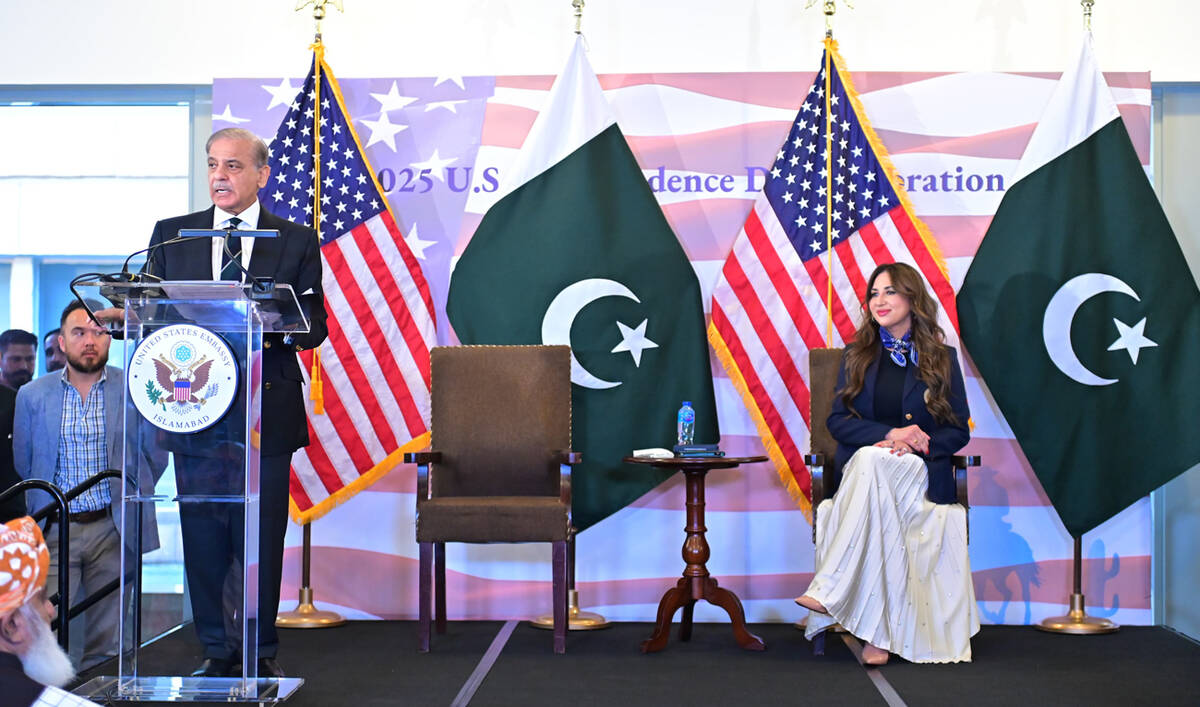ISLAMABAD: Islamabad on Friday criticized the United States and India after President Donald Trump met Prime Minister Narendra Modi at the White House and both leaders called on Pakistan to ensure its territory was not used as a base for militant attacks.
Trump rolled out the red carpet for Modi on Thursday, with both leaders touting deals their countries had reached on defense, energy and commerce. Washington and New Delhi also issued a joint statement following the meeting in which they called on Pakistan to bring to justice the perpetrators of two militant attacks and ensure that its territory was not used to carry out cross-border assaults. Later, speaking at a press conference, Trump said the United States will increase military sales to India starting in 2025 and eventually provide F-35 fighter jets.
“We consider the Pakistan specific reference in the Indo-US joint statement on Feb. 13, 2025 as one sided, misleading and contrary to diplomatic norms,” Foreign Office Spokesman Shafqat Ali Khan said at a weekly press briefing.
“We are surprised that the reference has been added to the joint statement notwithstanding Pakistan’s counterterrorism cooperation with the US.”
Relations between India and Pakistan have been fraught for years. Since independence from Britain in 1947, the two nations have fought three wars, two of them over the Muslim-majority Himalayan region of Kashmir, which they both claim in full but rule in part.
New Delhi has for years accused Pakistan of launching militant attacks in India, including the one in 2008 in Mumbai that killed over 165 people. India also says Pakistan has helped militants who have battled Indian security forces in its part of Kashmir since the late 1980s. Pakistan denies the accusation and says it only provides diplomatic and moral support for Kashmiris seeking self-determination.
The joint US-India declaration said: “The leaders further called on Pakistan to expeditiously bring to justice the perpetrators of the 26/11 Mumbai, and Pathankot attacks and ensure that its territory is not used to carry out cross-border terrorist attacks.”
“Such references cannot cover up India’s sponsorship of terrorism, subversion and extrajudicial assassinations in the region and beyond, nor can they shift international attention from the stark reality of India being a safe haven for the perpetrators of hate crimes against Muslims and other minorities,” the Pakistani foreign office spokesman responded.
Khan also said Pakistan was “deeply concerned” over the planned transfer of advanced military technology to India.
“Such steps accentuate military imbalances in the region and undermine strategic stability. They remain unhelpful in achieving the objective of a durable peace in South Asia,” he added.
“We urge our international partners to take a holistic and objective view of the issues of peace and security in South Asia and refrain from endorsing positions that are one sided and divorce from ground realities.”
India has agreed to buy more than $20 billion of US defense products since 2008. Last year, India agreed to buy 31 MQ-9B SeaGuardian and SkyGuardian drones after deliberations that lasted more than six years.
According to the US Congressional Research Service, New Delhi is expected to spend more than $200 billion over the next decade to modernize its military.


















